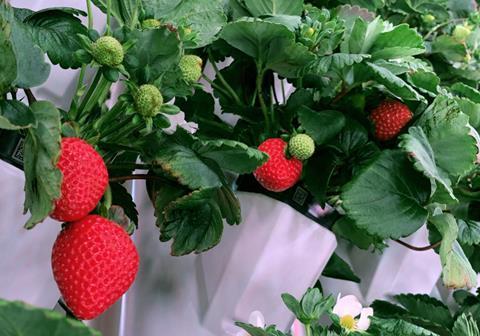US-based 48ha campus to grow indoor, vertically farmed berries at scale with a potential annual production capacity exceeding 9,000 tonnes

Plenty Unlimited, in partnership with Driscoll’s, has announced it will build a new US$300m indoor vertical farm campus after securing land in the US state of Virginia.
It claims it will construct the largest, most advanced indoor vertical farm campus in the world on the 48ha site to power the company’s East Coast expansion.
Plenty plans to deploy several large-scale vertical farms on the campus in the coming years, with a potential annual production capacity exceeding 9,000 tonnes across multiple crops including strawberries, leafy greens and tomatoes.
“Through more than a decade of investment in research and development Plenty has cracked the code on a scalable platform that makes indoor farming increasingly economical,” said Arama Kukutai, chief executive of Plenty.
“That innovation makes it possible for us to grow a wide variety of crops with a fraction of the land and up to 350x more yield per acre than conventional farms. Channelling that into the largest vertical farm complex in the world propels us to the level indoor farming has to operate at to truly transform our food system.”
The campus’ first farm will grow Driscoll’s strawberries, and be the first in the world to grow indoor, vertically farmed Driscoll’s berries at scale. The farm is designed to grow more than 1,800 tonnes of strawberries annually, helping to meet growing demand for berries in the Northeast, the largest berry consumption region in the US.
Plenty has broken ground on the farm and the first crop of Driscoll’s strawberries grown by Plenty will be available in winter 2023-2024 at retailers throughout the Northeast.
“This farm will combine Driscoll’s patented berry varieties with Plenty’s patented indoor vertical farming technology,” said J Miles Reiter, Driscoll’s chairman and chief executive.
“We are excited to take the next step in the journey to understand what it takes to bring fresh, flavourful berries locally grown all year-round.”






